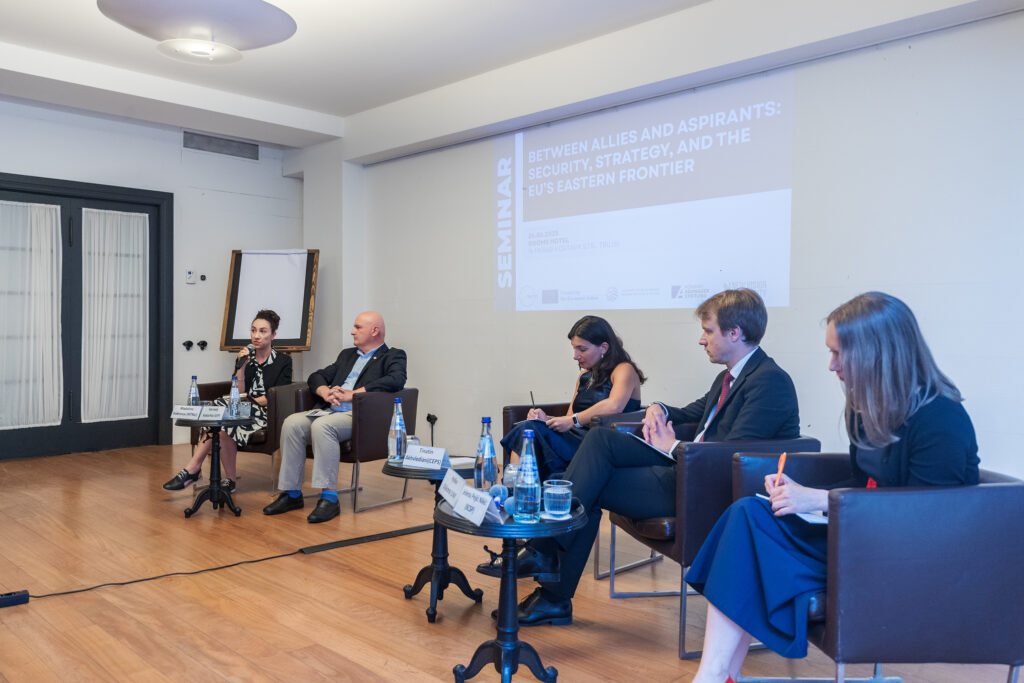Tbilisi, Georgia, 26 June, 2025 – Leading European scholars, policy analysts, and regional experts gathered this week at Rooms Hotel in Tbilisi for the REUNIR 2nd Midterm Conference, examining the EU’s foreign and security policy in a shifting geopolitical environment and its implications for candidate countries and the eastern neighbourhood.
Organised under the REUNIR project, the conference brought together participants from across Europe to discuss the EU’s evolving role as geopolitical competition intensifies and calls for strategic autonomy grow.
The conference opened on 26 June with welcoming remarks from Kornely Kakachia (Georgian Institute of Politics, GIP) and Steven Blockmans (Centre for European Policy Studies, CEPS), who stressed the urgency of aligning EU strategies with the complex realities of multipolar rivalry and internal contestation.
The first panel, “Balancing Geopolitics and Building Strategies for EU and Candidate Countries,” was moderated by Tinatin Akhvlediani (CEPS) and featured:
- Hylke Dijkstra (Maastricht University)
- Kornely Kakachia (GIP)
- Jelena Pejić Nikić (Belgrade Centre for Security Policy, BCSP)
- Madalina Dobrescu (NTNU)
Panelists examined the EU’s capacity to act as a credible partner for candidate countries while managing geopolitical pressures and regional fragmentation. They discussed practical strategies to ensure enlargement remains a credible policy in the face of democratic backsliding and external interference.
After a networking break, the second panel, “Transatlantic Rift: Can Europe Achieve Greater Autonomy in Defense, and What Could It Mean for its Eastern Neighbourhood?” was opened by Jakob Woellenstein (Konrad Adenauer Stiftung South Caucasus Office) and moderated by Eka Akobia (Caucasus University). The discussion featured:
- Steven Blockmans (CEPS)
- Laure Delcour (Sorbonne-Nouvelle)
- Neil MacFarlane (University of Oxford)
- Florian Bieber (University of Graz)
Speakers debated Europe’s capacity to reduce dependency on transatlantic security guarantees, the prospects for greater defence integration, and the consequences for the EU’s approach to the eastern neighbourhood.
The first day concluded with a reception, offering opportunities for informal exchange and networking among participants.
Held in the heart of Tbilisi, the conference highlighted Georgia’s pivotal role in EU neighbourhood policy debates and highlighted the importance of academic and policy dialogue in shaping a resilient, future-proof European foreign and security policy.
Funded under the European Commission’s Horizon Europe programme (Project ID No. 101132446), REUNIR continues to support collaborative research and policy engagement to strengthen EU security, enlargement, and neighbourhood strategies for a new age of international relations.
Photo©️ Zaza Nikolozishvili

